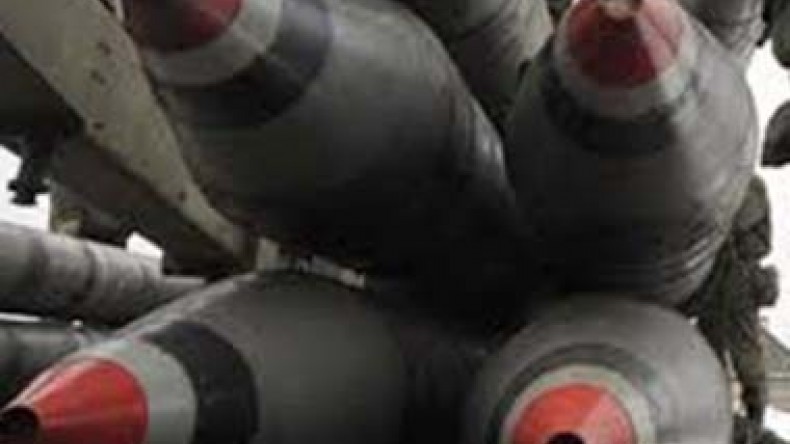
Armenia acquires advanced Chinese rockets
Armenia has acquired Chinese multiple-launch rocket systems with a firing range of up to 80 miles, a military source in Yerevan told RFE/RL’s Armenian service (Azatutyun.am) on Monday, according to Asbarez.com.
Speaking on the condition of anonymity, the source declined to specify the quantity of the AR1A systems obtained by the Armenian military and the dates of their delivery or give other details of the alleged acquisition.
The Armenian Defense Ministry, for its part, refused to confirm or refute the information. “Armenia’s armed forces are constantly supplied with new weapons and increase their combat readiness,” the ministry spokesman, Artsrun Hovannisian, told RFE/RL’s Armenian service. “We have clear plans of arms acquisitions and are adhering to them.”
AR1A, which China first demonstrated in 2009, is a long-range artillery system designed to attack concentrations of troops, command centers and important ground targets. Military experts say that it has many technological similarities with the Russian Smerch multiple-launch rocket systems, one of the most destructive weapons of its kind. Smerch rockets can hit targets up to 90 kilometers (55 miles) away.
Eighteen Smerch systems are reportedly among the $1 billion worth of new offensive weapons that Russia began delivering to Azerbaijan earlier this year. Armenian politicians and pundits have singled out this weapon in their strong criticisms of the Russian arms sales to Baku. The latter also purchased a dozen Smerch systems from Ukraine in the mid-2000s.
The nearest equivalent to the Russian rockets that Armenia has been known to possess until now are Chinese-made WM-80 multiple-launch systems with a firing range of up to 80 kilometers (50 miles). The Armenian military is thought to have acquired them in the late 1990s.
Chinese-Armenian military ties appear to have deepened in the last few years. Beijing and Yerevan signed in January 2012 what the Armenian Defense Ministry called an “agreement on military and military-technical cooperation.”
Newsfeed
Videos






























